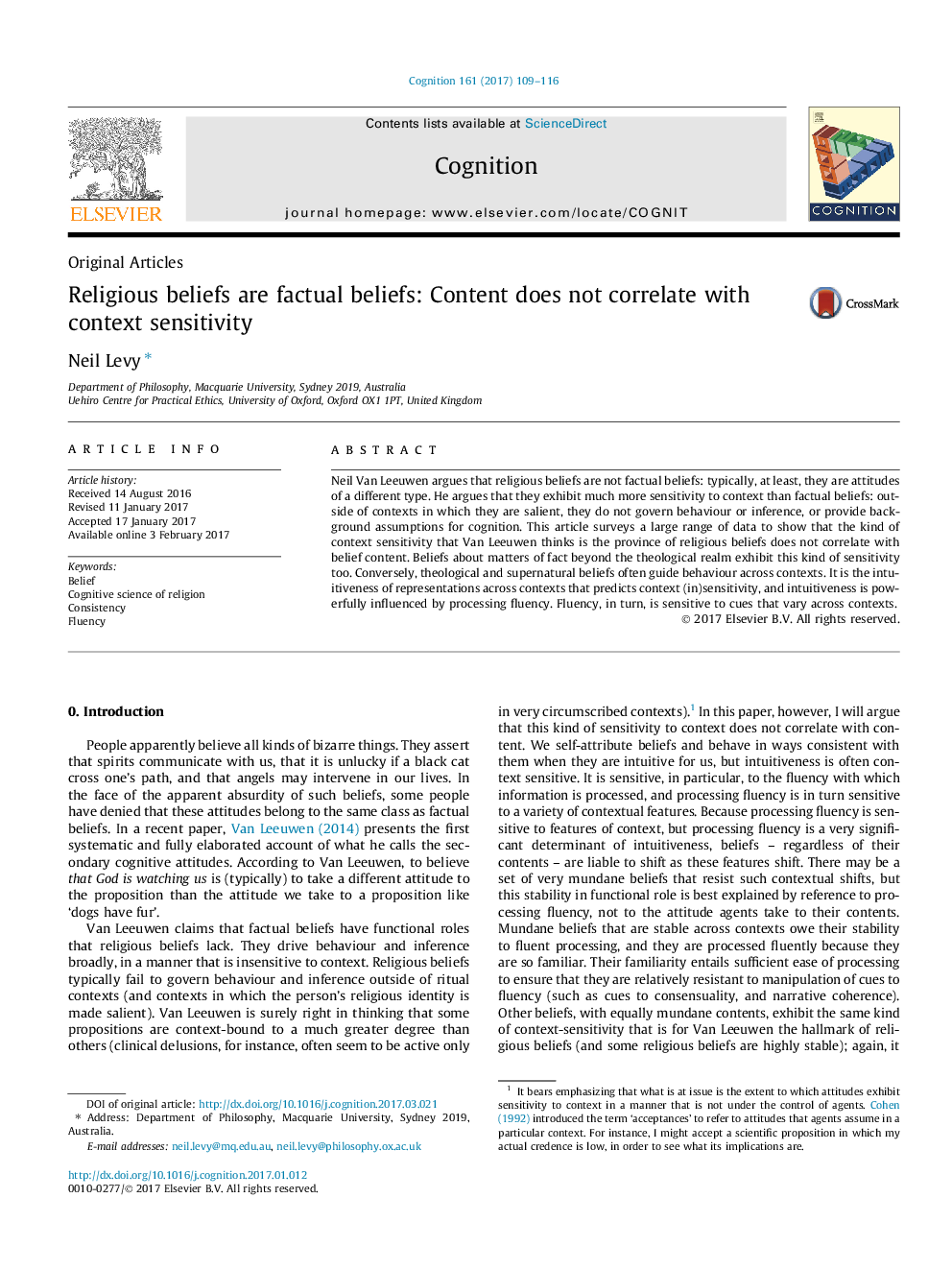| Article ID | Journal | Published Year | Pages | File Type |
|---|---|---|---|---|
| 5041526 | Cognition | 2017 | 8 Pages |
â¢Factual beliefs are as liable to shifting across contexts as religious beliefs.â¢Processing fluency predicts when beliefs are stable and when unstable.â¢Processing fluency and belief content do not correlate.
Neil Van Leeuwen argues that religious beliefs are not factual beliefs: typically, at least, they are attitudes of a different type. He argues that they exhibit much more sensitivity to context than factual beliefs: outside of contexts in which they are salient, they do not govern behaviour or inference, or provide background assumptions for cognition. This article surveys a large range of data to show that the kind of context sensitivity that Van Leeuwen thinks is the province of religious beliefs does not correlate with belief content. Beliefs about matters of fact beyond the theological realm exhibit this kind of sensitivity too. Conversely, theological and supernatural beliefs often guide behaviour across contexts. It is the intuitiveness of representations across contexts that predicts context (in)sensitivity, and intuitiveness is powerfully influenced by processing fluency. Fluency, in turn, is sensitive to cues that vary across contexts.
